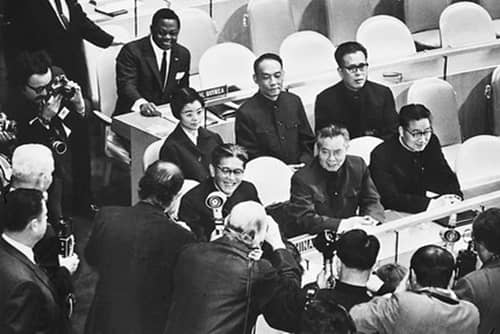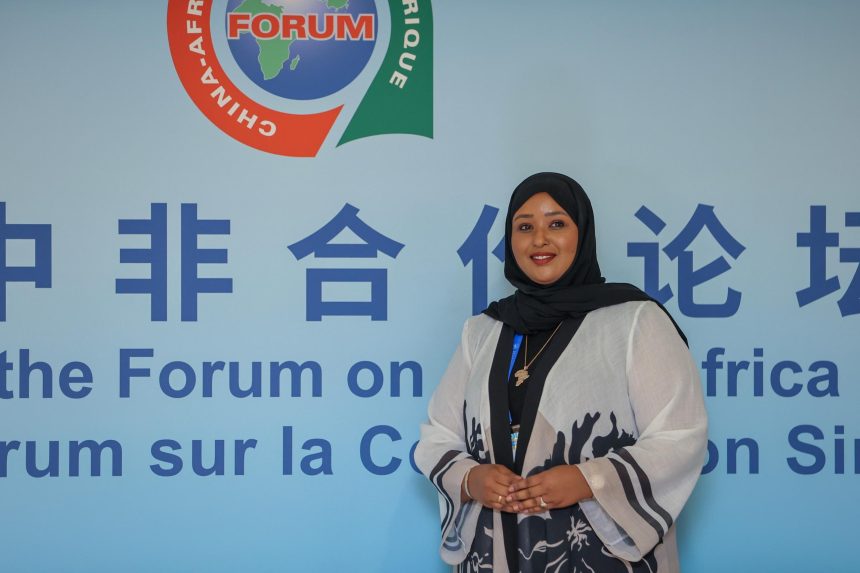By: Dr Hodan Osman Abdi Senior Advisor to the Prime Minister of Somalia
On October 25, 1971, Somalia stood among a group of 23 member states at the United Nations General Assembly that championed a resolution to restore the rightful seat of the People’s Republic of China at the UN. That day, UNGA Resolution 2758 was passed, marking a victory for developing nations that had long fought the injustices of colonialism and imperialism. For China, this was a victory decades in the making, and for Somalia, it was an opportunity to showcase its firm commitment to the One China Principle— a position it has consistently upheld for over half a century.

Fast forward to September 2024, and the long-standing friendship between Somalia and China has entered a new strategic phase. During a bilateral meeting at the September 2024 Forum on China-Africa Cooperation (FOCAC) summit in Beijing, Somali President Hassan Sheikh Mohamud and Chinese President Xi Jinping announced the elevation of their diplomatic ties to a strategic partnership. This agreement marks a significant milestone in a relationship rooted in shared history, mutual respect, and a common vision for the future.
Deep Historical Roots
Somalia’s relations with China have deep roots. Centuries ago, Chinese admiral Zheng He visited Somalia’s coastline as part of his famed voyages along the Maritime Silk Road. The surviving records of admiral Zheng He are inscribed with vivid details about the people and cultures of Somali coastal cities like Zeila, Berbera, Mogadishu and Barawe. Mogadishu, in particular, was a vibrant center of maritime trade since medieval times and was a key hub for the import of Chinese silk and chinaware into Africa and the Arabian Peninsula.
Beyond trade, as some historians record, Somalis from the Ajuran Empire (1538-1589) may have been the first Africans to establish diplomatic ties with the Ming Dynasty when they gifted a giraffe and incense to emperor Yongle more than 600 years ago. The Somali scholar and explorer Said of Mogadishu is said to have been the first African to learn and translate the Chinese language, as tales of his journey to China in the fourteenth century are well recorded in the famous traveler Ibn Battuta’s journals.
More recently, Somalia was the first country in East Africa to establish formal diplomatic relations with the people’s republic of China only months after gaining independence in December 1960. And since then, Somalia’s adherence to the One China Principle has always been loud and firm. Somalia’s representatives never shied from denouncing the injustice practiced against the People’s Republic at the UN and earnestly advocated for the restoration of China’s seat to the UN as the legal representative of its people.
A Legacy of Diplomatic Solidarity
China joined the United Nations as a founding member on the 24th of October 1945 and became a permanent member of the UN security council. Prior to that, China was one of four nations that drafted the United Nations Charter in 1944 and was accorded the honor of being the first to sign the UN Charter in recognition of its long-standing fight against aggression. Yet, after the 1949 revolution, the People’s Republic of China was denied representation at the UN, with the seat instead held by the government in Taiwan. For over two decades, efforts by the People’s Republic to reclaim its seat were blocked—until Resolution 2758 was passed in 1971, thanks in part to strong support from African nations like Somalia. Looking back at historic records, Somalia stands out as one of the most active campaigners for this cause at the time.
Throughout the 1960s, Somali diplomats consistently advocated for China’s rightful representation at the UN. In one of Somalia’s first addresses at the UN in 1961, Somalia’s UN representative Abdullahi Issa delivered a powerful speech condemning the exclusion of China, and asserted “I do not think it is appropriate to continue to ignore the existence of a government which exercises sovereignty over a vast area of land inhabited by over 600 million people.” This marked the beginning of a decade of vocal Somali support for China’s cause.
By the late 1960s, Somalia’s stance had only grown stronger. In 1967, Ambassador Abdulrahim Abby Farah called China’s exclusion “illogical and against the interest of the world community.” Somali diplomats continued to press the issue at the UN General Assembly, making it clear that the absence of China from key discussions, such as those on disarmament, hindered global progress. While participating in the 24th session of the UN General Assembly on 7th October 1969, Somalia’s Prime Minister at the time Mohamed Haji Ibrahim Egal questioned the capacity of the United Nations authority to carry its full weight when it fails to practice the principle of universality. He is famously quoted as saying “We cannot ask a State to respect our authority when we exclude that State from participation in our decision-making machinery.”
By 1971, Somalia had co-sponsored two resolutions to bring China back into the fold, solidifying its reputation as one of China’s most consistent advocates in Africa. Somalia’s Prime Minister at the time, Omar Arteh Ghalib, argued passionately that the UN’s credibility depended on the inclusion of the world’s most populous nation, declaring at the 26th session of UNGA on 28 September 1971, that Somalia has “always rejected the legal fictions, the procedural devices and the semantics that have been used to keep the true representatives of China from their rightful places in the United Nations”.
Outside the UN, Somali representatives were also vocal advocates in global media for the restoration of the legal rights of the government of the People’s Republic of China at global bodies. When interviewed by the CBS Middle East Correspondent Mitchell Krauss in 1971 on this same issue, Ambassador Abdulrahim Abby Farah, Somalia’s envoy to the UN, earnestly stressed “It is not for my government or any other government to say how the people of China should conduct their internal affairs. Taiwan is part and parcel of China.”

A Partnership for the Future
The Solidarity between Somalia and China at that critical stage was a testament to their shared history of resisting foreign domination and the harsh experiences of imperialism. The alliance with other African countries, however, was even more significant. It showed that smaller nations, when acting together, could significantly influence global decisions, and that their combined strength transcended the geopolitical dominance of larger powers. The restoration of China’s UN seat, championed by Somalia and these nations, became a defining symbol of the power of unity among African and other smaller states. As Chairman Mao Zedong famously remarked, “It was our African brothers, the small and medium-sized countries that carried us into the United Nations.”
The elevation of Somalia-China relations to a strategic partnership is not a merely symbolic gesture. It is a reflection of these deep historical ties between two nations that have long stood together. Now, as they look toward the future, both countries are committed to a partnership that promises shared prosperity and mutual growth. For Somalia, the benefits of this upgraded partnership are substantial. President Mohamud emphasized the importance of practical cooperation, noting that Somalia is eager to leverage China’s expertise to rebuild its infrastructure and improve its human capital at this critical stage of National Transformation. “We see China as a trusted partner,” Mohamud said during the summit. Somalia’s future, he added, hinges on collaboration with reliable allies like China as the country seeks stability and economic growth.
As Somalia prepares to take on a more prominent role on the global stage—having joined the East African Community and been elected to the UN Security Council as a non-permanent member starting in 2025— Somalia is poised to build on its historic legacy and play a substantial role in regional and international diplomacy. And in the decades to come, Somalia and China’s partnership will likely serve as a model of how two nations, bound by history and shared ideals, can work together to achieve mutual prosperity and growth. The alliance, built on a foundation of solidarity and mutual respect, has stood the test of time—and now, it looks toward a future filled with new opportunities.
By: Dr Hodan Osman Abdi
Senior Advisor to the Prime Minister of Somalia





